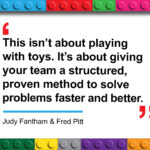Leading a not-for-profit is a demanding role, requiring leaders to navigate financial constraints, limited staffing, and high expectations. While many strive for perfection, research suggests that prioritizing effectiveness over flawlessness can lead to better outcomes. The concept of “good enough” leadership is increasingly recognized in not-for-profit management literature as a practical approach to sustaining impact while avoiding burnout.
The Pitfalls of Perfectionism in Not-for-profit Leadership
According to Bridgespan, not-for-profit leaders often face pressure to deliver impeccable results, but perfectionism can lead to decision paralysis and resource inefficiency. Instead of waiting for the perfect strategy, leaders should focus on incremental progress, ensuring that their efforts align with their mission while remaining adaptable.
Similarly, Harvard Business Review highlights that perfectionism can stifle innovation, as organizations become overly cautious about taking risks. In contrast, embracing a “good enough” mindset allows not-for-profits to test solutions, refine processes, and scale impact without unnecessary delays.
The Power of Imperfect Progress
Consider a not-for-profit launching a food assistance program. Ideally, every logistical detail—distribution, outreach, and funding—would be meticulously planned. However, waiting for perfection could mean delayed aid for those in urgent need. A “good enough” approach would involve starting with basic infrastructure, providing immediate relief while refining operations over time.
This principle aligns with Simon Sinek’s leadership philosophy, which emphasizes trust and adaptability over rigid perfection. Not-for-profit leaders who embrace this mindset can build resilient teams, fostering a culture where progress is valued over unattainable perfection.
How Consultants Help Not-for-profits Define “Good Enough”
Determining when “good enough” is truly enough can be challenging, which is why many not-for-profits turn to consultants for guidance. Consultants provide an objective perspective, helping leaders identify key priorities and optimize processes without unnecessary delays.
For example, a not-for-profit launching a new initiative might struggle with balancing efficiency and perfection. A consultant could assess the strategy, streamline operations, and recommend a phased approach—allowing the organization to start helping people immediately while refining logistics over time.
Key Questions to Evaluate “Good Enough” Decisions
Before settling on “good enough” not-for-profit leaders should ask themselves:
- Does this decision move us toward our mission? The best choices prioritize meaningful progress, ensuring that every action aligns with the core purpose of the organization. Leaders must evaluate whether the decision contributes to their long-term goals or if it is a distraction that diverts focus from the not-for-profit’s primary objectives.
- Are we using our resources wisely? Time, money, and energy should be allocated efficiently, maximizing impact while minimizing wasted efforts. A well-balanced approach helps leaders make strategic investments, ensuring that resources are channeled into initiatives that produce tangible results rather than unnecessarily depleting valuable assets.
- Will this strengthen trust with donors, volunteers, and stakeholders? Transparency and accountability foster strong relationships, creating a foundation for sustained support and engagement. Open communication about challenges, decisions, and successes reassures stakeholders that the organization operates with integrity and a commitment to making a meaningful difference.
Balancing Progress and Perfection in Leadership
Choosing “good enough” is not about cutting corners—it’s about making strategic decisions that keep organizations moving forward. Business literature suggests that leaders who embrace realism without cynicism can create authentic, adaptable organizations that thrive in dynamic environments.
With the right mindset—and expert support from consultants—not-for-profit leaders can strike a balance between organizational ambition and efficiency, ensuring sustainable growth and lasting impact.
For a discussion on “good enough” Michelle can be reached here: Michelle Coombs, PhD – The Osborne Group







0 Comments